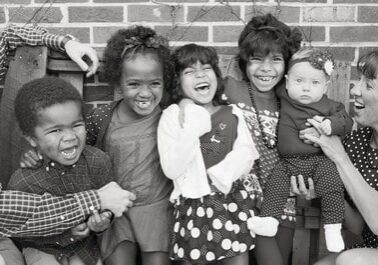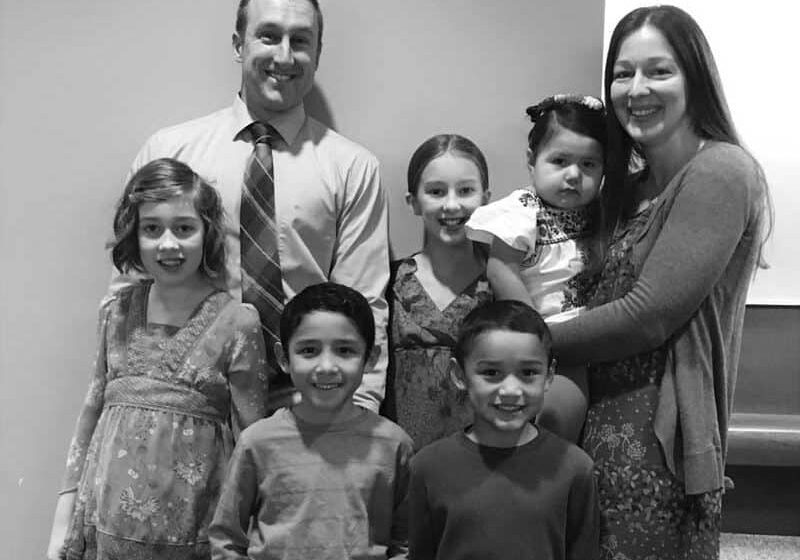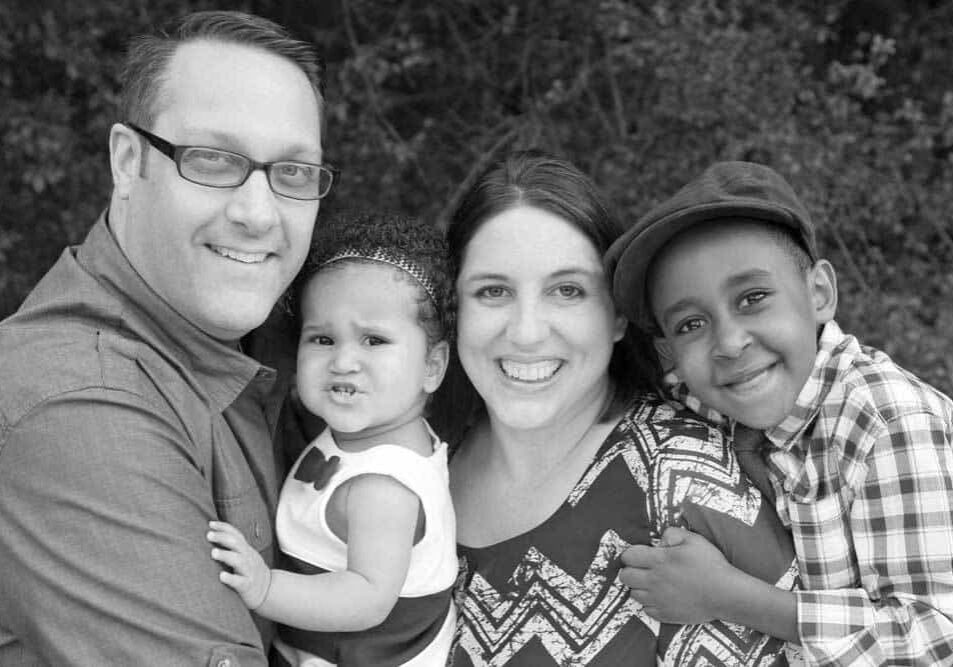by Sarah Roney
My oldest daughter was born in India and can’t remember not having a younger sibling. She was born to play the role of big sister, and when she came home to us last June, fit right in as the oldest not of two anymore, but of five. She is serious, smart, loves art and playing school, and sees things in black and white- her right way, or the wrong way. Case closed. She is seven, going on thirty-seven.
And there may be a reason for this. Because in her short seven years, she has seen and experienced more trauma than anyone should have to in a lifetime. She remembers her birth mama and birth papa, has vivid memories of living with them, and equally vivid memories of being left at the orphanage in India. She spent two years there, watching out for her younger sister, before being adopted and brought home to a house in America. For a long time, she got motion sick in every vehicle she rode in beside a rikshaw, and was forced to rely on the kindness of her new parents, who couldn’t even communicate with her. Life has thus far been hard.
So when I mentioned how hard things have felt with her in prayer cell today, my friend started nodding her head, like she understood. The explosions I can’t predict and the fall-outs that follow even though we’ve been home together for sixteen months. The ability to experience a minor disappointment and have it to ruin her day and ours. The feeling of walking on egg shells in our home, because the devastation of not getting her way has far reaching ramifications. The heaviness that we all feel when she is not able to self-regulate or is choosing to have a bad day. The weight of enforcing the consequences of her own poor decisions, make me feel ill-equipped to mama her well. Oh the darkness.
My dear friend, continued to nod. “The trauma she has experienced has given her a ‘low processing capacity.’” I looked back at her with confusion. “So when something happens that she doesn’t like, her ability to process the information is poor. You may be talking to her about lost library books or a messy room, but she processes it as failure and either shuts down or over reacts. Past trauma prevents her from distinguishing between a minor source of sadness and a life-changing catastrophe.”
It makes perfect sense. This is exactly what happens to her. But the weight of the words were heavy and the solution wasn’t clear. What can we do to increase our children’s processing capacity when the world has already done so much harm? How do we help her get through her siblings birthday parties when she has now ruined two parties in a row and everyone is tired of it? How do we muster compassion for her low processing capacity when her tantrums are so severe and so mean? How do we reach-out when she shuts-down? How do we pull her out of the emotional pits she falls into when she doesn’t want any one else’s help?
I called today to get her on a wait list for behavioral therapy. Perhaps someone else can share with her the tools she needs to process disappointment at a higher capacity? Perhaps someone distanced from our family will be able to impact her thinking more profoundly? But the wait is long and the marathon of family birthdays and holidays is upon us. What can we possibly do now to create a family culture that is more conducive to her growth and healing?
My friend immediately suggested “telling joy stories and sharing appreciations.” How campy is that? But the more I thought about it, the more I recognized the power behind these habits. It has always seemed like a nice idea to talk about gratefulness around the dinner table, and I think that should be a regular part of our family conversations. While we’ll keep it in the rotation, perhaps the better question to ask is “what made you joyful today?” Perhaps the best way to model gratitude and joy is through conscious story telling of joyful moments so that they learn how to tell joy stories themselves?
Sharing appreciations sounds a lot like something we already do- where I tell each girl what I am proud of them for at bedtime. These moments make them beam, and I have always known that, but why haven’t I thought to use this language more throughout the day- calling them out on what makes me proud of them in the moment?
I look at the clock and pick-up time is soon. My heart beat quickens more than I would like it to, because this morning was really hard and I know I need to talk to her more. I don’t want to continue the tough conversation or replay what has made the past week so hard. But there are consequences, and she must learn to talk to me when the going gets tough. She can’t shut down forever or we’ll never get her back. So I sigh deeply, finish up one last sip of coffee, and ask the Lord for grace. So much grace.
I close the door, load up Baby, and drive through the crunchy, cold snow so recently fallen. I pray quietly asking for strength to address the issues we need to, wisdom to know what will bring peace to her soul, and the hope to believe that things will get better in time. I pray that her processing ability will increase, that our home will be a place where joy stories are exuberantly shared, and that our children will learn to carry our appreciations with them for the rest of their lives. I pray that our daily habits will build within them the knowledge that their parents are proud of them every single day and never stopped fighting for their healing and wholeness, no matter how far away it felt.



